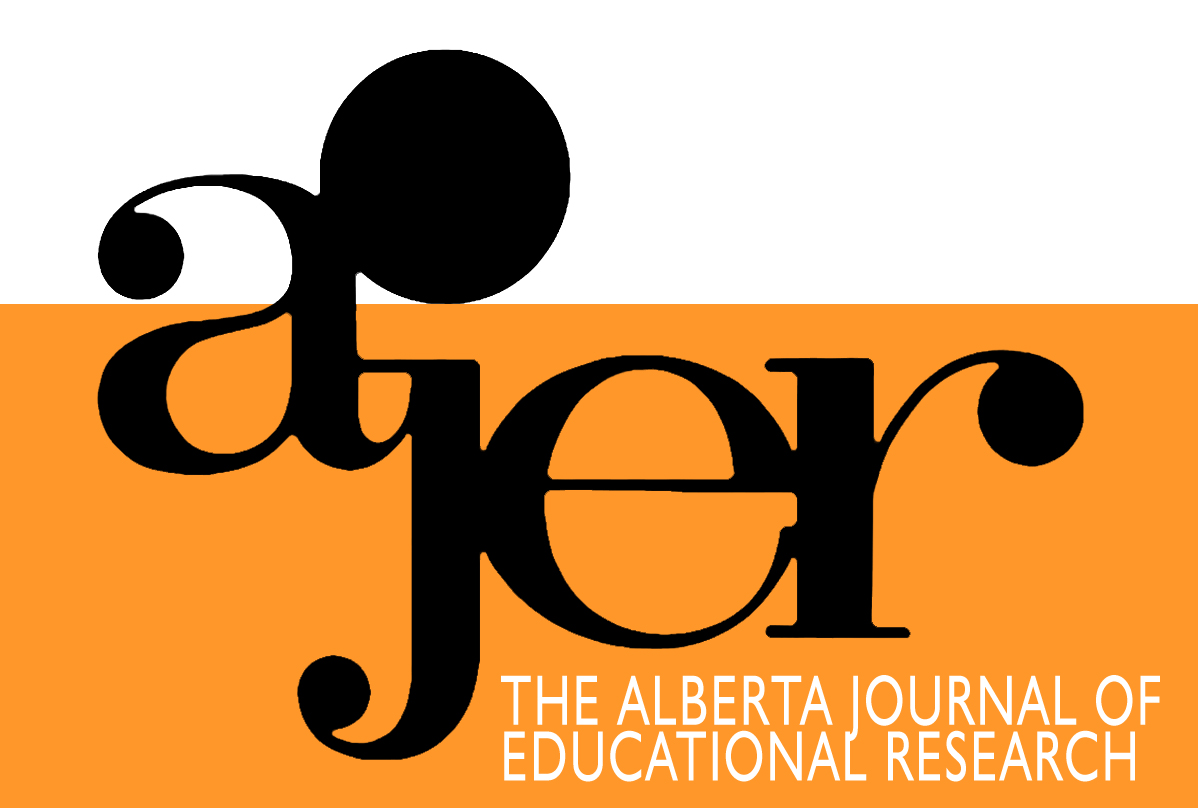“They know how to navigate…but they don’t know where to go”: Students’ Feedback on Mathematics Teachers’ Practices
DOI:
https://doi.org/10.55016/ojs/ajer.v70i1.77811Abstract
The goal of this paper is to explore aspects of the work of mathematics teachers that students consider problematic and in need of improvement. By using an inductive thematic analysis, we present three themes generated from interviews conducted with 15 students in Alberta, Canada who were participating in high school mathematics upgrading courses. The three themes are: 1) responsiveness, 2) contextualizing the mathematics, and 3) empathy. Our findings show that the majority of the students felt a need for teachers to value the social and emotional dimensions of students’ learning and to listen to students’ concerns rather than adhering to pre-planned or standardized lessons. Students had conflicting views on the extent to which teachers should contextualize the mathematics they are teaching.
Keywords: Student feedback on teaching; social and emotional relationships; teachers’ attitudes; mathematics teaching and learning.
L'objectif de cet article est d'explorer les aspects du travail des enseignants de mathématiques que les élèves considèrent comme problématiques et devant être améliorés. En utilisant une analyse thématique inductive, nous présentons trois thèmes générés à partir d'entretiens menés avec 15 élèves de l'Alberta, au Canada, qui participaient à des cours de mise à niveau en mathématiques au secondaire. Ces trois thèmes sont les suivants : la réactivité, la contextualisation des mathématiques et l'empathie. Nos résultats montrent que la majorité des élèves estiment que les enseignants doivent valoriser les dimensions sociales et émotionnelles de l'apprentissage des élèves et être à l'écoute de leurs préoccupations plutôt que de s'en tenir à des leçons préétablies ou standardisées. Les élèves ont des avis divergents sur la mesure dans laquelle les enseignants devraient contextualiser les mathématiques qu'ils enseignent.
Mots-clés : commentaires des élèves sur l'enseignement ; relations sociales et émotionnelles ; attitudes des enseignants ; enseignement et apprentissage des mathématiques
Downloads
Published
Issue
Section
License
UNIVERSITY OF ALBERTA COPYRIGHT LICENSE AND PUBLICATION AGREEMENT
If accepted, authors will be asked to sign a copyright agreement with the following points:
A. Where there is any inconsistency between this Copyright License and Publication Agreement and any other document or agreement in relation to the same subject matter, the terms of this Agreement shall govern.
B. This document sets out the rights you are granting in relation to publication of your article, book review, or research note entitled (the “Article”) through inclusion in the academic journal titled Alberta Journal of Educational Research (the “Journal”) published through the Faculty of Education, representing the Governors of the University of Alberta (the “Journal Editor”).
C. There will be no payment to you for this publication and grant of rights. In consideration of the agreement to publish the Article in the Journal:
1. You are warranting that:
- the content of the Article is your original work, and its content does not contain any material infringing the copyright of others; or, where the Article is not entirely your original work, you have obtained all necessary permissions in writing to grant the rights you are giving in this agreement;
- the content of the Article does not contain any material that is defamatory of, or violates the privacy rights of, or discloses the confidential information of, any other person;
- the Article has not been published elsewhere in whole or in part, and you will not allow publication of the Article elsewhere without the consent of the Journal Editor;
- the names of all co-authors and contributors to the Article are:
2. You agree to license the copyright in the Article to the Journal Editor, on a worldwide, perpetual, royalty free basis; and to the extent required by the terms of this agreement. You shall retain the right at all times to be acknowledged as the/an author of the Article.
3. You further agree that the Journal Editor has the entitlement to deal with the Article as the Journal Editor sees fit, and including in the following manner;
- The right to print, publish, market, communicate and distribute the Article and the Journal, in this and any subsequent editions, in all media (including electronic media), in all languages, and in all territories, ing the full term of copyright, and including any form of the Article separated from the Journal, such as in a database, abstract, offprint, translation or otherwise, and to authorize third parties to do so;
- The right to register copyright of the Journal;
- The right to edit the Article, to conform to editorial policy as the Journal Editor sees fit.
4. If any co-author or contributor to the Article does not sign this agreement, the Journal Editor reserves the right to refuse to publish the Article.



